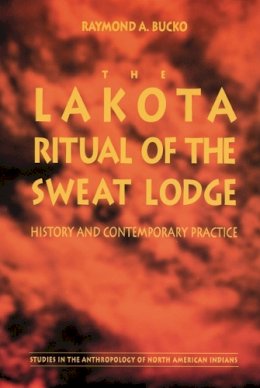
Stock image for illustration purposes only - book cover, edition or condition may vary.
The Lakota Ritual of the Sweat Lodge: History and Contemporary Practice
Raymond A. Bucko
€ 29.20
FREE Delivery in Ireland
Description for The Lakota Ritual of the Sweat Lodge: History and Contemporary Practice
Paperback. For centuries, a persistent and important component of Lakota religious life has been the Inipi, the ritual of the sweat lodge. The sweat lodge has changed little in appearance since its first recorded description in the late seventeenth century. This title looks at the history and significance of the Lakota sweat lodge. Series: Studies in the Anthropology of North American Indians. Num Pages: 340 pages, Illus. BIC Classification: HRKT; HRLF; JFSL9. Category: (P) Professional & Vocational. Dimension: 229 x 154 x 22. Weight in Grams: 498.
Read more
For centuries, a persistent and important component of Lakota religious life has been the Inipi, the ritual of the sweat lodge. The sweat lodge has changed little in appearance since its first recorded description in the late seventeenth century. The ritual itself consists of songs, prayers, and other actions conducted in a tightly enclosed, dark, and extremely hot...
Product Details
Format
Paperback
Publication date
1999
Publisher
University of Nebraska Press United States
Number of pages
340
Condition
New
Series
Studies in the Anthropology of North American Indians
Number of Pages
340
Place of Publication
Nebraska, United States
ISBN
9780803261655
SKU
V9780803261655
Shipping Time
Usually ships in 7 to 11 working days
Ref
99-1
About Raymond A. Bucko
Raymond A. Bucko is a professor of anthropology at Creighton University.
Reviews for The Lakota Ritual of the Sweat Lodge: History and Contemporary Practice
"With an extended description of such an experience, Raymond A. Bucko begins his comprehensive study of the sweat-lodge rituals practised by the Lakota people on the big Pine Ridge reservation of South Dakota. If you delve beneath the surface , you find that Bucko's position has some interesting complexities about it. He points out that fieldworkers and anthropologists tend to...
Read more